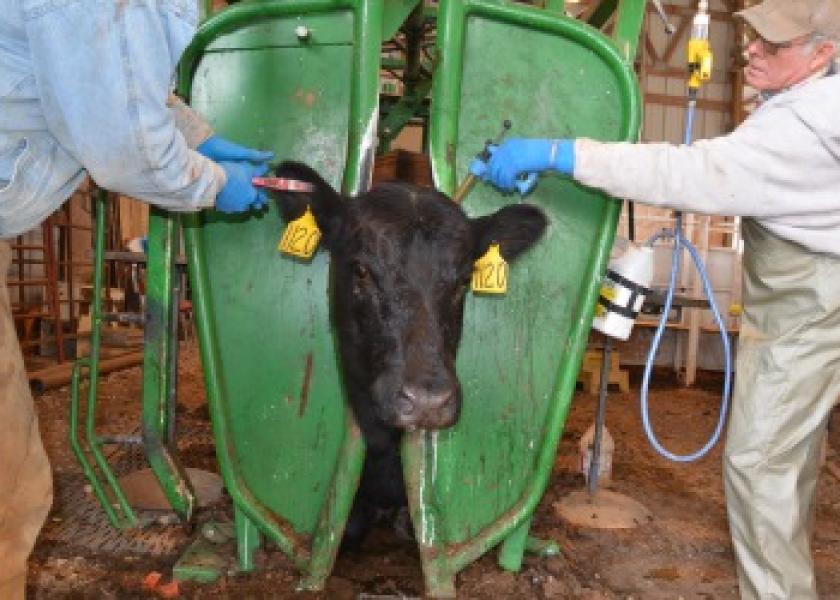AgriLabs to Expand Autogenous Vaccine Portfolio for Beef and Dairy Cattle

AgriLabs is building on its partnership with Addison Biological Laboratory by rolling out two new autogenous products — Moraxella bovoculi and Streptococcus uberis mastitis vaccines — made with ENABL®, a new adjuvant from VaxLiant® that is U.S. Department of Agriculture (USDA)-approved for safety. These products not only expand AgriLabs’ autogenous portfolio but also meet the growing demand for customized vaccine solutions, offering producers more options for maintaining herd health.
“This product expansion further strengthens a partnership with Addison Labs that has been a significant asset to the growth of I-Site XP®, a broad protection vaccine against pinkeye,” said Brian Reardon, Business Unit Manager for AgriLabs. “By extending this partnership with Addison Labs, we are ensuring producers have more access to herd-specific vaccines as herd conditions change.”
New autogenous vaccines added to the lineup
“Environmental conditions are constantly in flux giving rise to new diseases and organisms,” said J. Bruce Addison, President for Addison Labs. “When a farm encounters an organism that is unique or variant, veterinarians and producers are faced with a challenge of how to handle the situation. If a commercial vaccine is not available for the bacterium, an autogenous vaccine may be useful.”
Autogenous vaccines fit a specific need and are an option to control losses associated with disease. With this new offering of autogenous vaccines, AgriLabs is addressing problems such as:
- M. bovoculi — Pinkeye, associated with Moraxella bovis and M. bovoculi, appears to be an increasing problem among cattle. A single dose of I-Site XP® vaccine protects cattle against M. bovis. Currently, no commercial vaccines are available to treat M. bovoculi. Having an autogenous vaccine constructed by Addison Labs, marketed by AgriLabs, is an excellent choice.
- S. uberis — S. uberis is the most common Streptococcal species isolated from mastitis case submissions in the United Kingdom, New Zealand and U.S. This documented distribution and level of significance in such variable climates and management systems leads to the inevitable conclusion that S. uberis may be the greatest nemesis to economical milk production to all herds worldwide. The vaccine production process for this organism is efficient and allows the use of autogenous vaccines as an effective tool in the battle against such a formidable and significant mastitis opponent as S. uberis. All combination of Streptococcus can be included in the formulation as well as other causative autogenous bacteria. Bovine E. coli and Clostridium autogenous are also available.
New VaxLiant adjuvant, ENABL® C1 autogenous option
AgriLabs’ relationship with Addison Labs will incorporate an autogenous option using a novel ENABL adjuvant developed for use in cattle vaccines. Research shows that ENABL, which had a 21-day withdrawal period, improves vaccine stability and can provide a stronger immune response.
“Being able to provide these new vaccine options to veterinarians and producers is our main goal,” said Reardon. “We are excited about how these autogenous vaccines can help manage highly contagious diseases — saving producers time and money in the long run.”
Going the autogenous route
Addison Labs manufactures the licensed autogenous vaccines that contain ENABL, and AgriLabs is the exclusive distributor for these vaccines. Addison Labs follows all USDA regulations and approved guidelines to ensure a safe and quality product. When considering an autogenous vaccine, it’s best for producers to discuss with their veterinarian the best course of action. For more information, veterinarians and producers can contact their AgriLabs representative.
Source: AgriLabs







